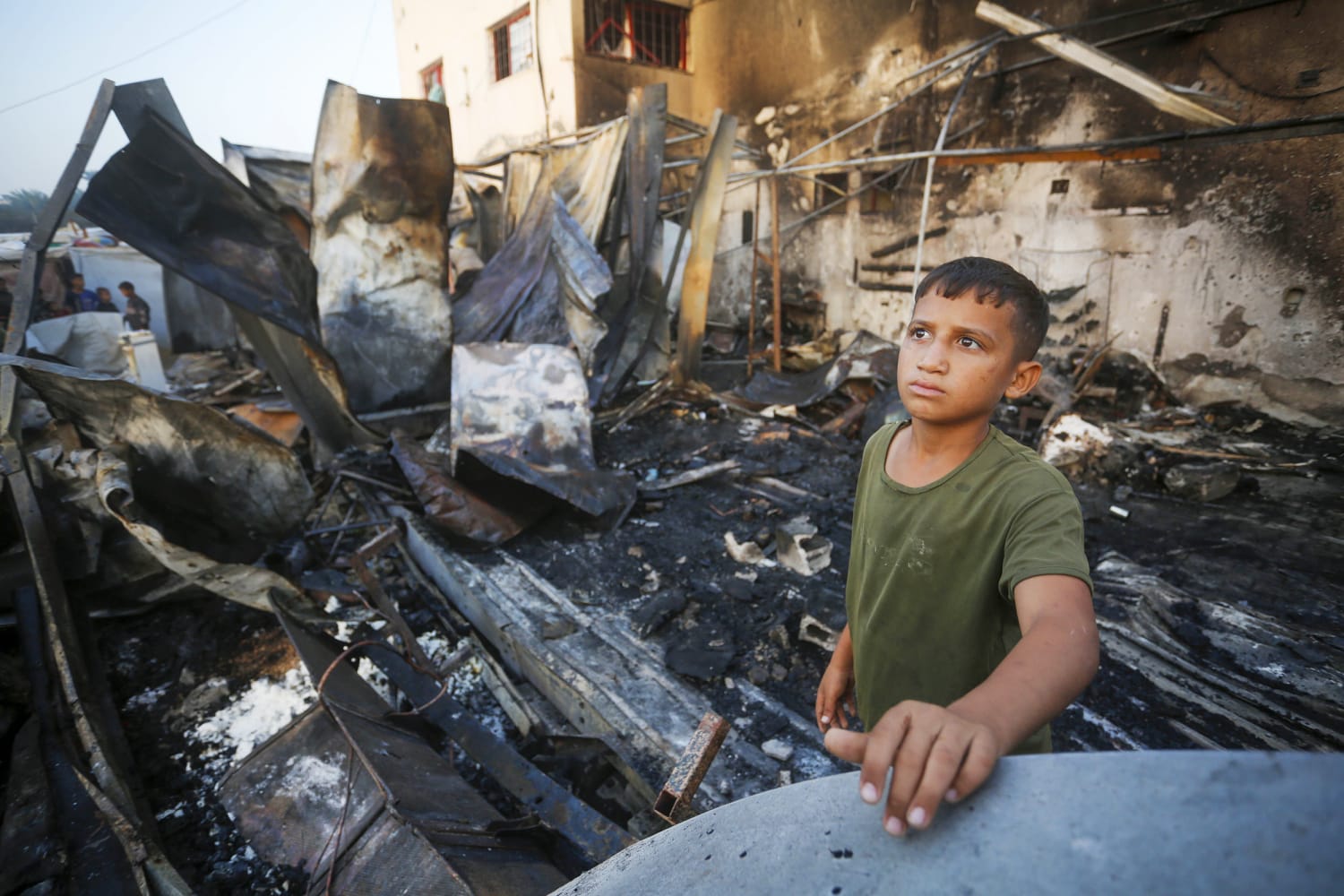The devastating Israeli strike on Nasser Hospital in Gaza on August 25, 2025, which killed 19 people—including four journalists—has reverberated far beyond the Middle East. In New Jersey, a state with deeply connected and politically active Palestinian and Jewish communities, the attack has sparked mourning, debate, and renewed calls for humanitarian action.
Impact on New Jersey’s Palestinian Communities
For many New Jersey Palestinians, the news hit close to home. Cities such as Paterson, home to one of the largest Palestinian populations in the state, saw residents mourning loved ones and reflecting on the ongoing conflict. Social media posts, community vigils, and public statements underscore the collective grief of families who have relatives in Gaza and fear for their safety.
Local leaders and organizations, such as the New Jersey chapter of the Council on American-Islamic Relations (CAIR-NJ), have been vocal in condemning the strike and advocating for immediate humanitarian aid. Community members have repeatedly called for U.S. officials to pressure both Israel and Hamas to allow safe passage for medical supplies, food, and water. For many, the attack on Nasser Hospital represents not just a military action, but a direct threat to civilians and journalists documenting the realities of war.
Responses from New Jersey’s Jewish and Israeli American Communities
New Jersey is also home to a substantial Jewish and Israeli American population, many of whom are closely following developments in Gaza and Israel. Reactions within this community are varied. Some emphasize support for Israel’s right to defend itself, while others stress the importance of avoiding civilian casualties and pursuing a negotiated ceasefire.
Pro-Israel organizations, including Norpac, based in Englewood Cliffs, have called for continued U.S. support for Israel’s security while urging diplomacy to mitigate humanitarian suffering. Public discussions, panel events, and social media debates reflect the nuanced perspectives that exist within New Jersey’s Jewish and Israeli American communities.
Political and Advocacy Reactions in the Garden State
The hospital strike has reignited a political dialogue in New Jersey about the Israel-Palestine conflict, highlighting both divisions and common ground.
- Elected Officials: Representatives such as Josh Gottheimer have reaffirmed support for Israel while emphasizing the need to provide aid to Palestinian civilians caught in the crossfire. Meanwhile, Congresswoman Bonnie Watson Coleman and other lawmakers have criticized Israeli military actions, calling for an immediate ceasefire and humanitarian access.
- Advocacy Groups: Beyond elected officials, organizations like CAIR-NJ continue to organize rallies, educational events, and campaigns urging New Jersey residents to engage politically—through voting, advocacy, and public outreach—to influence U.S. foreign policy regarding Gaza.
The ongoing activism highlights a broader trend: New Jersey’s residents are not just passive observers. Communities are mobilizing to ensure that local voices influence national discourse on human rights and humanitarian law.
Humanitarian and Media Implications
The strike’s impact is compounded by the deaths of journalists on the scene, underscoring the risks faced by media personnel covering conflicts in regions where foreign reporters are often denied access.
- International Law: Human rights organizations have stressed that hospitals are protected spaces under international humanitarian law, and attacks on medical facilities can constitute war crimes. The Nasser Hospital strike is likely to provoke renewed calls for independent investigations and accountability.
- Press Freedom and Safety: The deaths of journalists, including Associated Press freelancer Mariam Dagga, bring attention to the vital role that Palestinian journalists play in documenting the conflict. Their work ensures that the world sees firsthand accounts from Gaza, particularly as international reporters are largely restricted from entering.
Looking Ahead: New Jersey’s Role
The Nasser Hospital strike has not only affected families and communities in New Jersey but has also galvanized political action and advocacy. From community vigils to social media campaigns, the state reflects the broader global concern over civilian protection, press freedom, and the need for humanitarian solutions in conflict zones.
Residents and leaders alike are urging continued attention to the crisis, emphasizing that engagement, awareness, and advocacy from New Jersey’s diverse communities can contribute meaningfully to efforts to protect civilians and support journalists on the frontlines.
For continued updates on local and global events affecting New Jersey residents, explore our News section, where we provide comprehensive coverage of political, social, and humanitarian stories impacting the Garden State.












